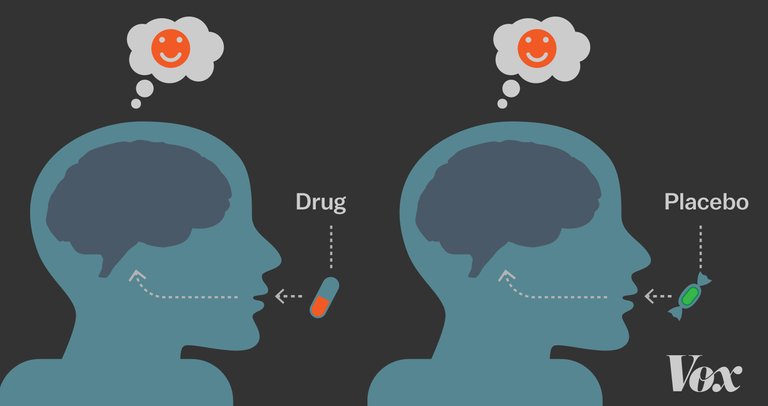Hey y'all,
Since it's my firts post, i would like to tell you that i'll post a little bit about everything, cryptocurrency, diseases, personalities, news, just a little bit of everything, not only a subject.
So in this post im going to talk of a theme that really gets me curious: The Placebo effect.
Placebo effect is a state between mind and body, one of the most common theories is that the placebo effect is due to a person's expectations. If a person expects a pill to do something then it's possible that the body's own chemistry can cause effects similar to what a medication might have caused.
Basically it's all about personal expectations.
In a 1983 article, Clement J. McDonald and others defined a placebo as "a substance or procedure... that is objectively without specific activity for the condition being treated". Under this definition, a wide variety of things can be placebos and exhibit a placebo effect.
In 1985, Irving Kirsch hypothesized that placebo effects are produced by the self-fulfilling effects of response expectancies, in which the belief that one will feel different leads a person to actually feel different.
For years, a placebo effect was considered a sign of failure. A placebo is used in clinical trials to test the effectiveness of treatments and is most often used in drug studies. For instance, people in one group get the tested drug, while the others receive a fake drug, or placebo, that they think is the real thing. This way, the researchers can measure if the drug works by comparing how both groups react. If they both have the same reaction — improvement or not — the drug is deemed not to work.

Placebos often work because people don't know they are getting one. But what happens if you know you are getting a placebo?
A 2014 study led by Kaptchuk and published in Science Translational Medicine explored this by testing how people reacted to migraine pain medication. One group took a migraine drug labeled with the drug's name, another took a placebo labeled "placebo," and a third group took nothing. The researchers discovered that the placebo was 50% as effective as the real drug to reduce pain after a migraine attack.
Somehow it's like when somebody is telling you a lie and you know is a lie :laughing:
The researchers speculated that a driving force beyond this reaction was the simple act of taking a pill. "People associate the ritual of taking medicine as a positive healing effect," says Kaptchuk. "Even if they know it's not medicine, the action itself can stimulate the brain into thinking the body is being healed."
Stay tunned and thanks for the atention
@spiritualmax @ddua @originalworks
The @OriginalWorks bot has upvoted and checked this post!
Some similarity seems to be present here:
https://en.wikipedia.org/wiki/Placebos
This is an early BETA version. If you cited this source, then ignore this message! Reply if you feel this is an error.
Ups!
And it that i unsderstand something you said in a class ! ahah
That's a great first post.
Welcome to Steemit
I hope you find everything you're looking for here and that you get the rewards you deserve. I'll keep on following you through this new journey of yours .
Thanks for the support @spiritualmax ! Still learning about the concept and the whole idea, but i'll get it !
Great first post Ricardo!!
Thanks man @ddua
Still learning about the all process of steemit
We are in the same boat eheh :)